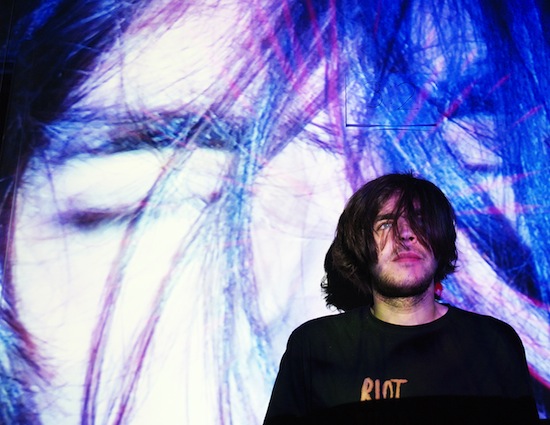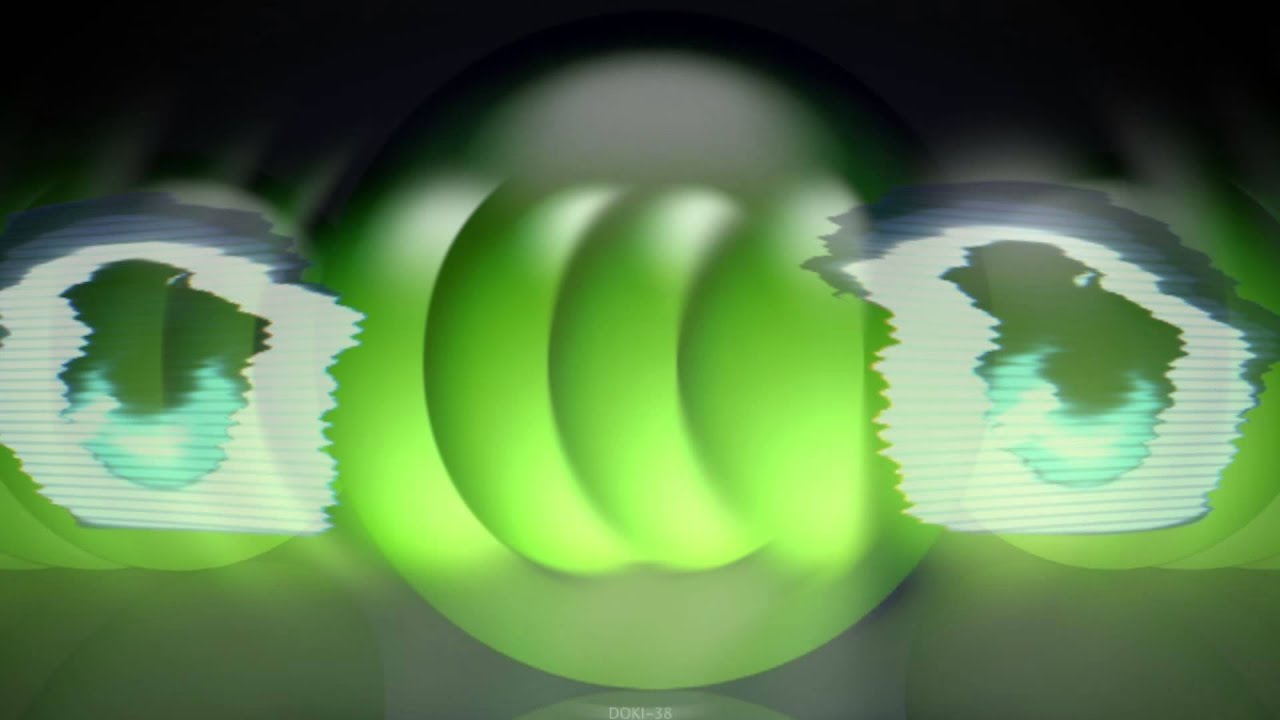"’Doki-doki’ is a Japanese onomatopoeic word for when your heart beats quickly when you get nervous," Matt Loveridge, aka Fairhorns, mumbles down the phone. "So ‘Doki Doki Run’ is an idiosyncratic way of saying panic attack. It’s purely from me being an anime nerd."
Doki Doki Run (‘doki’ is pronounced to rhyme with ‘cocky’, incidentally) is the debut album from Fairhorns – the new solo project from Loveridge, who is also one third of BEAK> alongside Geoff Barrow and Billy Fuller. Responsible for both the unsettling synthesiser lines and grinding guitar parts of what has proved one of the most exciting British bands of recent years, Loveridge also previously traded under the name of Team Brick, until his output of noise, electronica and perverse songcraft eventually collapsed under the weight of its own eclecticism.
On the basis of Doki Doki Run and the handful of live shows he’s played so far, Fairhorns seems far more streamlined, although no easier to categorise. Combining Neu! rhythms, sinister John Carpenter synths and vocals distorted to the point of unintelligibility with snatches of mutant disco, drifting doom-folk and glassy, scraping, set-your-teeth on edge-sawing-feedback, then setting the whole lot to clanking steam-driven beats and musique concrete sound collages, the whole adds up to a kind of British bleak urban ritual music. Moving from crashing explosions of noise to moments of almost religious calm and beauty, it’s at times like a rejected Throbbing Gristle soundtrack for Michael Reeves’ 1968 Tigon horror classic Witchfinder General, or a Gregorian choral society chanting along with the dying pirate radio signals from a crashed and burning stolen car on an M5 sliproad. Matt himself variously describes the album – released, like BEAK>, on Bristol’s excellent Invada Records – as "blackened kraut," "Ur-Step," and "music for angry nerds who like to groove stoically and immobile."
I gather Fairhorns is just one of a number of post-Team Brick projects that you’re doing, is that right?
Matt Loveridge: Yeah, that’s right, I decided to separate things. I took all the elements that I liked out of Team Brick and made it focus on its own thing, rather than being an amalgam of lots of mess! I thought I’d focus everything and condense it down into its own entities. I’ve just released something under the name of MX LX, which is more noise-based composition; it’s where the big vocals and the harsh noise stuff live now. And then there’s more composed stuff under the name Knife Liibrary, which is a reaction against acoustic music, whilst being acoustic. A no wave thing. And then there’s two electronic projects as well. [Head to Matt’s Bandcamp and Tumblrfor more on his other projects.]
With Fairhorns, there are obvious similarities to what you’ve been doing with Beak. Did working with Geoff and Billy influence your solo work, or is it more that Fairhorns is an extension of what you were bringing to that sound anyway?
ML: I think that’s more appropriate, yeah. I guess doing something more krauty has probably touched on Fairhorns, and vice versa I suppose. Everything I do covers everything else; if I do one record that’s completely different to another record, there’s still elements of it that they’ve learnt from each other. It’s all a continuation of learning, I suppose.
Can you tell me a bit about your early musical tastes, when you were a teenager, for instance?
ML: It was pretty average late nineties, early 2000s teenage tastes. Of course I got into the nu-metal thing, me being who I was, and really about that time I started discovering bands like Mr Bungle, and John Zorn and Merzbow, and started branching out from there, I suppose. And then as I got slightly older I discovered bands like Melt Banana and Converge, and some of the more wild, exciting bands out there.
Were you always drawn towards extremes, then, stuff that was noisy and progressively more complex and difficult?
ML: Not necessarily; it was always about eliciting an emotional response. And that stuff had a strong sense of excitement and joy to it that I never found in a lot of music. But at the same time that I was big into that stuff, I’d be listening to Outkast and Public Enemy and things like this, and even Blur, Orbital… so it comes from both sides, it’s just what I found that I enjoyed, that just had something that got to me. And it turned out that the more wild stuff, I liked it to be really wild rather than just a bit wild.
Was this just an individual pursuit, or were you among a group of friends who were exploring the same type of music?
ML: God, no! I didn’t have friends until I was about eighteen or nineteen.
So you were just obsessively seeking out this music that spoke to you?
ML: Yeah, since I got into music around the age of six, I just got quite excited about it, and that was all I was into from then.
Can you remember that moment when you were about six? Was there a point where it was just, yes! This is it!
ML: It was when my cousin was babysitting me. He put on Metallica, and at the age of six I’d never heard anything quite like that. I just thought, fuck me, this is amazing! I didn’t even know music could sound like this. I was so excited by this feeling of… this what the fuck feeling, but also this big joy that I felt in it, that I just thought, well I know I like music anyway, but I’ve got to seek more of this stuff out. And I’ve been doing that ever since.
So that’s when it went from being just enjoyable to being a matter of life and death.
ML: Pretty much. Music is how I process the world, it’s how I understand and how I communicate as well. It’s become more than just a hobby; it’s just how my brain works.
And now you’re part of this family of artists around Invada Records, which does genuinely feel like a kind of family; there’s a variety of different sounds, everybody is doing different things within it, but there is a kind of common thread. How does that seem from the inside, would you agree with that?
ML: Yeah, I’d agree with that. Everyone involved with music on Invada is to a degree a little bit wrong, and generally I think what’s nice about Invada is that there’s a level of dissatisfaction there, with tropes in music and social mechanisms that most people carry out without considering. And people on Invada have gone, well fuck this, I disagree. People seem to react against this, which is really nice. And they challenge a lot of ideas about music, without being explicitly political about it; they just do things differently by being fucked off about something, which I really like, because I appreciate that a lot.
I saw some of your live set at Supernormal this year, and I know you played at the Portishead-curated I’ll Be Your Mirror festival last year, but have you been playing live much?
ML: Not an awful lot. It’s quite demanding to play live for me. I’ve just got to keep track of a lot of equipment, a lot of processes are going on, so it takes a lot out of me. I think I’ve enjoyed maybe half of the shows I’ve done as Fairhorns. There’s a lot that can go wrong, and often does. But that’s part of the fun, I suppose.
So is that something you’d like to pursue more?
ML: Yeah, definitely. But there’s still a lot of scope for things to try out. I’ve already started writing some new things for it, and seeing what other processes I can get involved with, in terms of making music more enjoyable to play, and to listen to as well.
There seems to be a general theme of anxiety and unease running through the album; you said that the phrase ‘Doki Doki Run’ refers to a panic attack, and then with titles like ‘Worried Thrum’ and ‘Puking’ it reflects a nervous edginess that’s there to hear in the music anyway.
ML: Yeah. All the songs are kind of about little deaths and anxieties, and what comes after them, I suppose, and the joy of tribulation at the same time. Not so much what you’re going through, but after it’s finished, and you come out the other side, or something.
Should we read much into the titles? Are they meant to be suggestive, or is it just a case of sticking something on that seems to be appropriate afterwards?
ML: There’s certain aesthetics tied to it. Again, all art is subjective and you can interpret it however you want, but there are certainly aesthetics towards it that I’d like to imply rather than explicitly force down peoples’ throats. But there’s an attitude and an idea to each track that’s not necessarily verbal. One thing I’d like to say though is that I’m a bit confused about the reviews I’ve seen so far, where everyone says it’s a really strange album. That seems to be the main thread going through all of the reviews, where to me it doesn’t seem strange at all, it seems quite pleasant and fuzzy and nice. To me it’s just a dozy, fuzzy, faraway album, and it’s not that strange.
Though this is despite what we’ve been saying about there being a theme of anxiety running through it, so if people find it a bit dark, that’s not entirely unintended.
ML: Yeah; it’s dark, but it’s light at the same time. It’s not just this punishing, demanding thing. It’s a purging I think.



